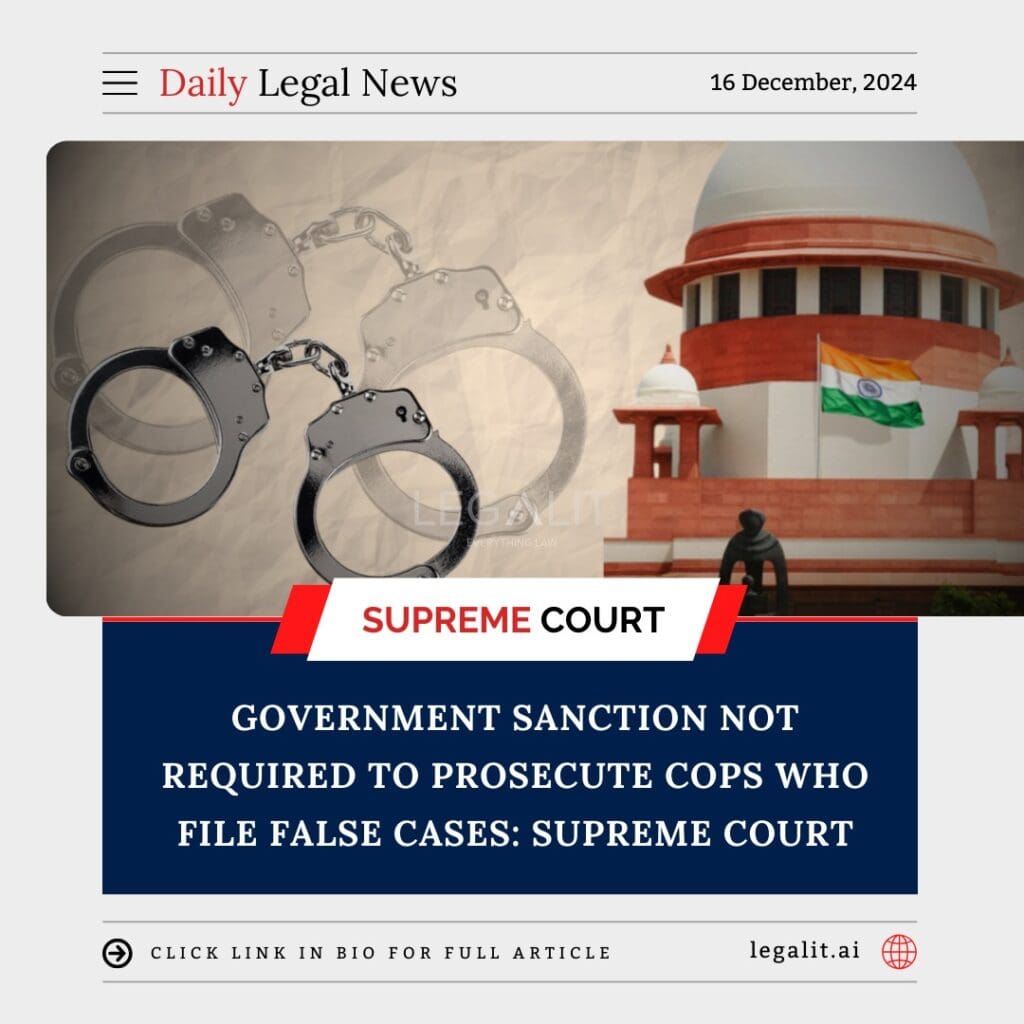
The Supreme Court of India recently ruled that government sanction is not needed to prosecute police officers who file false cases, marking a significant decision in the pursuit of justice and accountability for law enforcement officials. The ruling came in response to a petition challenging the need for governmental approval in cases involving police misconduct, specifically related to the filing of false charges.
Background:
The case emerged from a legal challenge over whether or not prior government sanction is required to initiate criminal proceedings against police officers accused of filing false cases. Under the Indian Penal Code (IPC), public servants, including police officers, are typically protected from prosecution without prior approval from the government, especially in cases where the alleged misconduct is related to their official duties.
The petitioners argued that this provision, which is designed to protect police officers from frivolous or politically motivated cases, has been misused to shield officers from accountability. Specifically, they contended that when police officers fabricate charges or engage in misconduct, it undermines the legal process and violates the fundamental rights of individuals. The petitioners argued that the government should not have the power to block criminal proceedings in such cases.
Court’s Rationale:
In its ruling, the Supreme Court emphasized that false cases filed by police officers are not acts carried out in the discharge of their official duties and, therefore, should not be shielded by government sanction provisions. The Court pointed out that the integrity of the justice system is paramount, and any attempt by law enforcement to misuse their powers by filing false cases is a grave offense.
The bench observed that when police officers commit offenses, particularly when they violate the law by framing innocent individuals, they should be held accountable without the need for government approval. The Court underscored that such actions by public servants tarnish the reputation of the police force and erode public trust in the justice system, necessitating immediate corrective action.
The ruling clarifies that the need for government sanction applies only in cases where the alleged actions are directly related to the officer’s duties, such as those within the scope of their role as public servants. However, when it comes to filing false charges, which is an act of personal misconduct and not a part of official duty, there is no need for prior sanction.
Existing Measures:
Historically, the requirement for government sanction has been a protective measure for police officers, ensuring that cases against them are not filed recklessly. However, this provision has often been criticized for allowing misconduct to go unchecked, especially in cases of false charges.
Several judicial bodies and human rights organizations have long advocated for a more robust accountability framework within the police force, urging for reforms that ensure greater transparency and fairness. This ruling by the Supreme Court addresses one such call, reinforcing the principle that no one, including law enforcement officers, is above the law.
Conclusion:
The Supreme Court’s decision marks a crucial step toward holding police officers accountable for false charges and misconduct, reinforcing the notion that justice cannot be impeded by bureaucratic delays or protective measures. By removing the need for government sanction in these cases, the Court ensures that police officers who abuse their powers to frame innocent individuals can now be prosecuted directly, without unnecessary hurdles. This judgment is a significant development in the pursuit of justice and transparency in the Indian legal system, sending a strong message that even those in positions of power must answer for their actions.